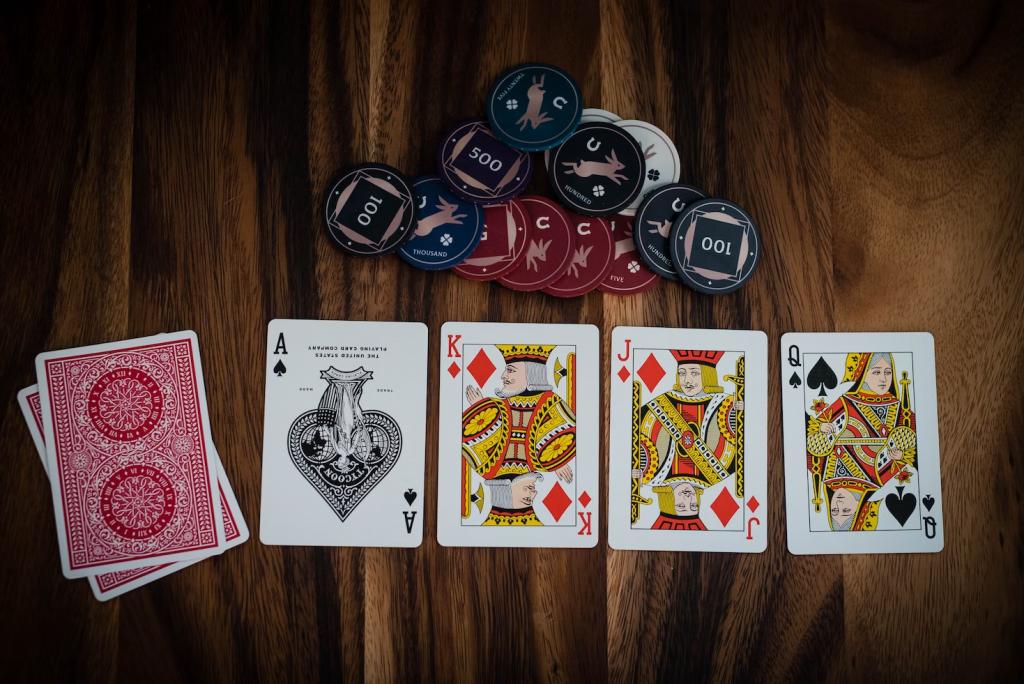
Want to get into the professional world of poker playing? You’re not the only one! Thousands of people are making a legitimate career out of testing their luck at the poker tables, but only the very best players have what it takes to take out the competition and bring home significant amounts of prize money.
If you have dreams of crushing it at the poker table, there are a lot of things you need to learn before you can even try to take down some of the great pokies. Poker is a game of skill and strategy, which you can only learn through experience and a dedication to learning everything there is to know about this popular table game. If you want to kickstart your poker knowledge and be on your way to achieving poker greatness, here are 6 things that every professional player needs to know.
1. Be Creative With Your Starting Hands
When the dealer has dealt your cards, you may be disappointed and feel like there’s no way that you’re going to come out on top in this game. Although we wouldn’t recommend taking big risks in this situation, you shouldn’t let your initial throw you off your game. Some of the best starting poker hands are usually AA, KK, QQ, JJ, TT, 99, AK, AQ, AJ, KQ, and KJ, but if you don’t have these, it doesn’t mean that the game is over.
Just because you don’t have one of the combinations above, your opponents don’t know that so you do have some opportunity to do a little bit of bluffing. Of course, you don’t want to be too obvious and throw down your money blindly, but if you’re able to outwit your opponents even with a less-than-desirable hand, you’re well on your way to becoming an excellent poker player.
2. Dont Bluff Too Much
Following on from the point we made above, another important tip that many professional poker players learn the hard way is to not bluff too much. Your other opponents are smart, and if they see that you’re being a bit too arrogant about the cards you have, they’ll quickly catch on to the fact that you aren’t being totally honest.
Bluffing in poker can be great when you want to take risks and push your opponents to make decisions in your favor, but it can also be a quick ticket to losing all of the money you’ve put on the table. Be smart about bluffing and use it sparingly to get the most out of your game.
3. Accept That You Won’t Win Every Time
Another tip you’re unfortunately going to learn the hard way is the fact that it’s impossible to win every single game – even if you are one of the best poker players of all time.
It’s never a guarantee to win, even if you play perfectly, so try to reframe the idea of losing in your mind. Instead of seeing it as a failure, see it as a learning experience that you can use next time to make better decisions and more successful bets.
4. Get to Know Important Poker Math
You may think that your maths days are far behind you, but it’s a really important skill that you will need to master if you want to be better at poker.
Poker is ultimately a test of odds and probabilities, that you need to work out within seconds when you’re playing a live game. The type of math that you will use isn’t going to be insane algebraic calculations but will require some quick mental maths.
5. Keep an Eye On Your Opponents
When you’re playing poker, you’ll be against different players every time, and the better you become at being able to read these people, the easier you’ll find it to get ahead of them.
Everyone has weaknesses in their game, and you should try to use these to your advantage. So, instead of just focusing on what you’re doing, keep an eye on your opponents and look for the right moment to exploit their gameplay and get ahead.
6. Treat Poker Strategies Like Homework
After finishing school, you had probably hoped that you’d never have to do homework again but, with poker, it may be something that could improve your gameplay.
When you’re not playing games, it’s good to learn about new strategies that you can try out in your next game. Choose a strategy that you’re interested in, learn about it, and bring some notes to your next poker game so you can see how it works.
You can also play other games in your free time that help to advance some of the certain skills you need in poker. There are plenty of skills you can transfer between different games, like how to do math at a glance and how to manage other players, all things that will help you become the next great professional poker player.